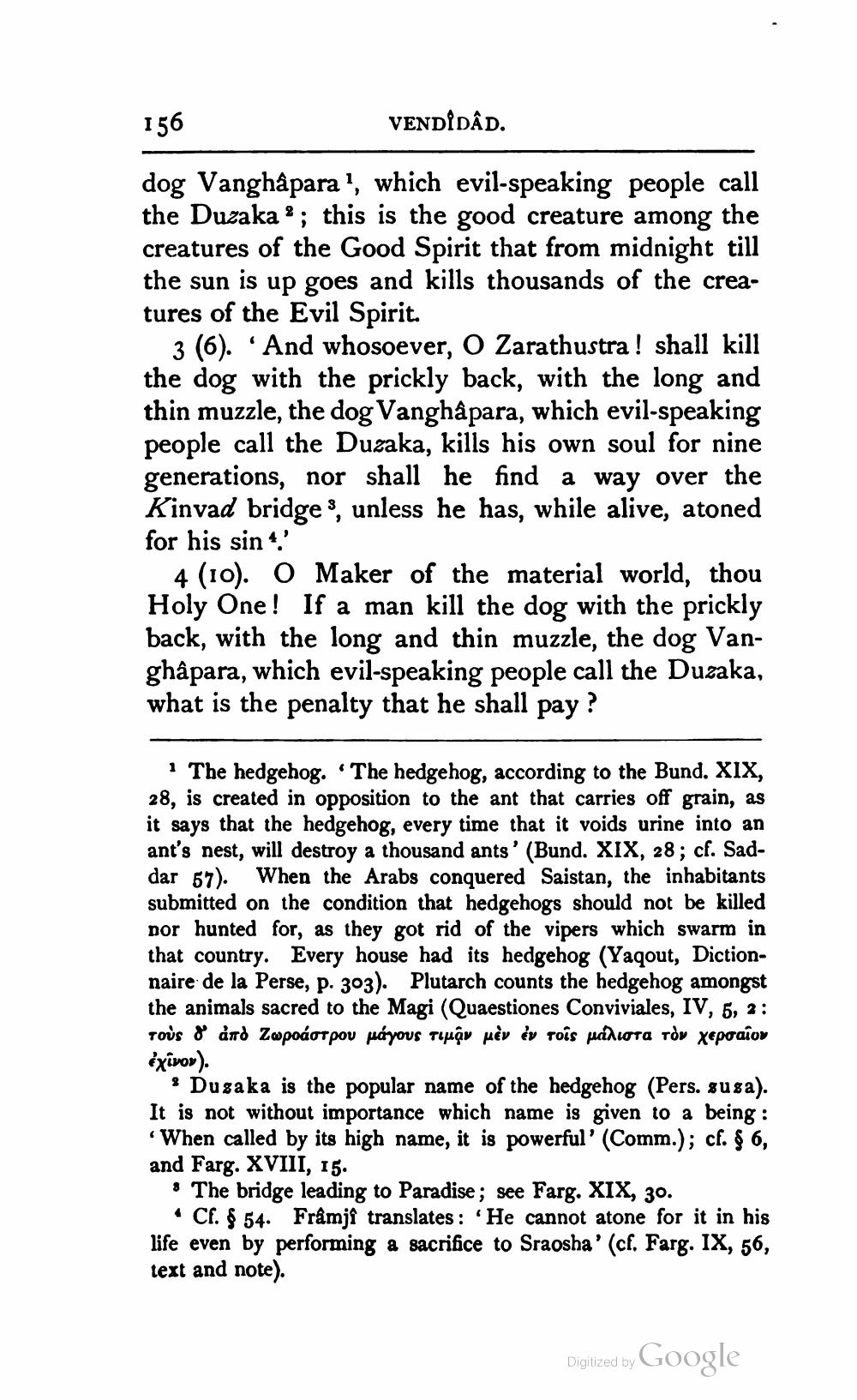________________
156
VENDIDAD.
dog Vanghåpara ', which evil-speaking people call the Duzaka ? ; this is the good creature among the creatures of the Good Spirit that from midnight till the sun is up goes and kills thousands of the creatures of the Evil Spirit.
3 (6). “And whosoever, O Zarathustra ! shall kill the dog with the prickly back, with the long and thin muzzle, the dog Vanghâpara, which evil-speaking people call the Duzaka, kills his own soul for nine generations, nor shall he find a way over the Kinvad bridges, unless he has, while alive, atoned for his sin ?
4 (10). O Maker of the material world, thou Holy One! If a man kill the dog with the prickly back, with the long and thin muzzle, the dog Vanghâpara, which evil-speaking people call the Duzaka, what is the penalty that he shall pay ?
1 The hedgehog. The hedgehog, according to the Bund. XIX, 28, is created in opposition to the ant that carries off grain, as it says that the hedgehog, every time that it voids urine into an ant's nest, will destroy a thousand ants' (Bund. XIX, 28; cf. Saddar 67). When the Arabs conquered Saistan, the inhabitants submitted on the condition that hedgehogs should not be killed por hunted for, as they got rid of the vipers which swarm in that country. Every house had its hedgehog (Yaqout, Dictionnaire de la Perse, p. 303). Plutarch counts the hedgehog amongst the animals sacred to the Magi (Quaestiones Conviviales, IV, 5, 2: τους και από Ζωροάστρου μάγους τιμών μεν εν τοις μάλιστα τον χερσαίον éxivor).
3 Dusaka is the popular name of the hedgehog (Pers. susa). It is not without importance which name is given to a being : "When called by its high name, it is powerful' (Comm.); cf. § 6, and Farg. XVIII, 15.
• The bridge leading to Paradise; see Farg. XIX, 30.
. Cf. $ 54. Frâmji translates: 'He cannot atone for it in his life even by performing a sacrifice to Sraosha' (cf. Farg. IX, 56, text and note).
Digitized by Google




